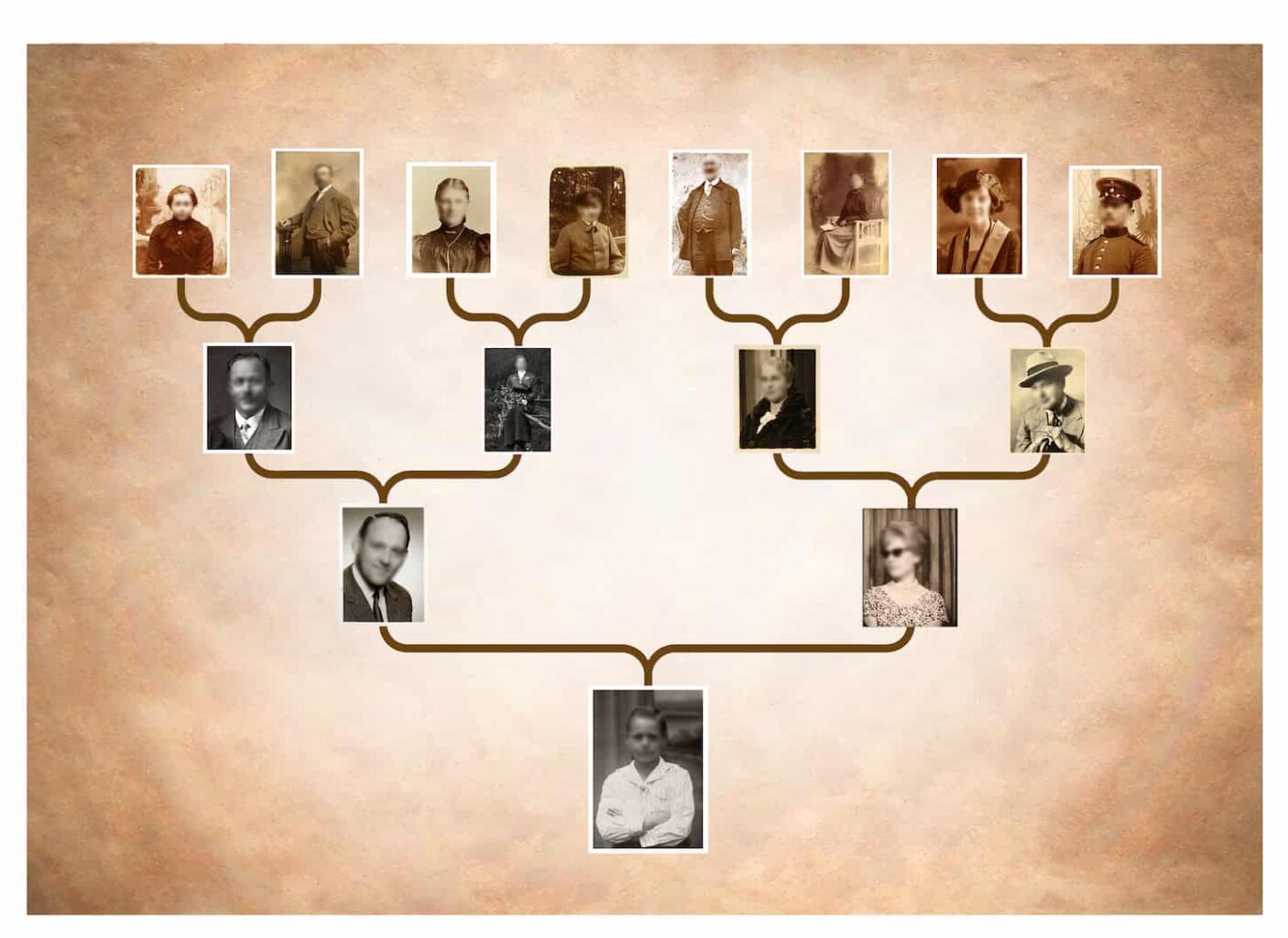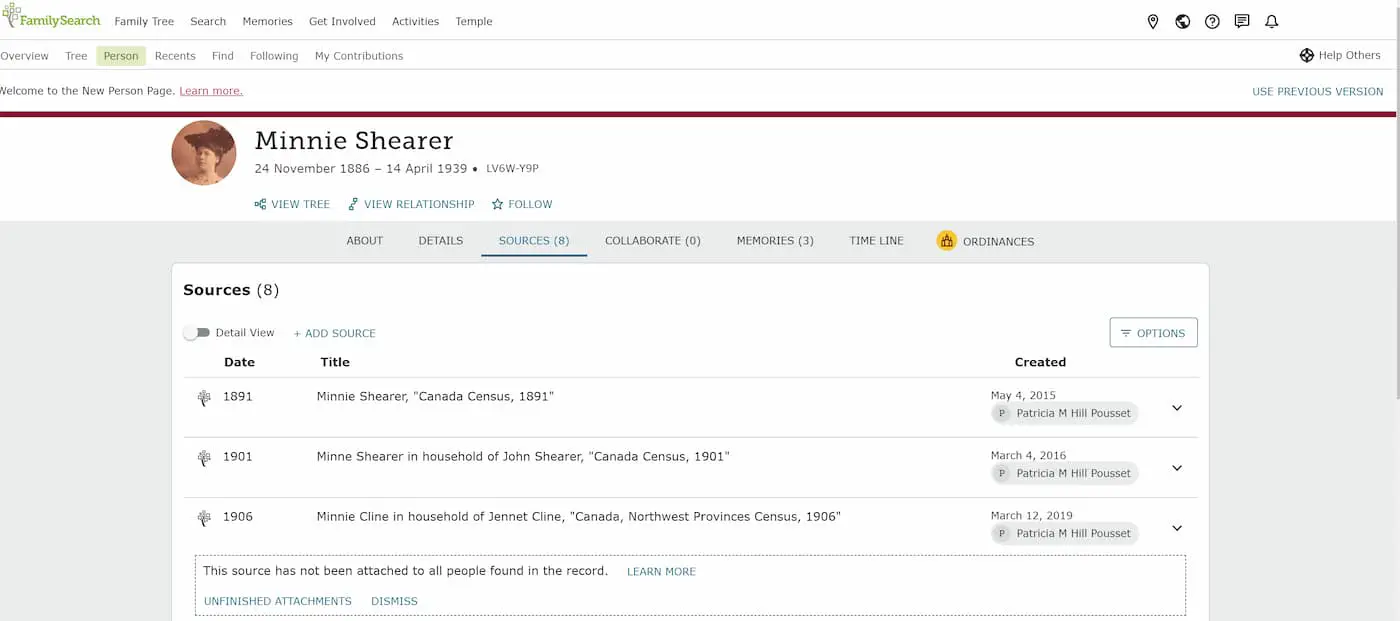Tracing a family tree can be costly, especially when hiring a genealogist and registering with sites. The internet is full of resources, but researchers must pay a monthly fee for most data-rich sites. We have free tips for tracing a family tree to avoid monthly fees.
The best free genealogy website to find a family tree is FamilySearch. People can also use other free resources such as the USA National Archives, the local library, and genealogy centers to trace their family tree.
There are so many genealogy resources on the internet that it’s hard to siphon through them to find exactly which ones charge fees. Signing up for premium sites can be expensive, so to help keep the cost down, we’ll tell you 20 ways to find a family tree for free. You’re welcome.

List of Ways to Trace Your Family Tree for FREE
There are many ways to trace a family tree for free, both online and in person. People can use FamilySearch, the National Archives, social media, and memorial websites such as Find a Grave online. They can browse records in the local library or genealogical center in person.
Tracing family history doesn’t have to be expensive, and below, we’ve listed 20 ways to find a family tree for free.
Talk to family members
The best way to start a family tree is by talking to family members, which is completely free. Speaking to the family will provide the foundations for research and is essential to creating a family tree.
Get in touch with all relatives, especially the older ones, and ask them to participate in formal interviews. Make notes of the interviews or record them with a camera or audio recorder.
Ask them about birth, marriage, death dates, locations, maiden names, immigration, military service, and old addresses.
Search family records
Old family records are also a treasure trove of information when building a family tree. Search the home or a parent’s home for old documents such as birth, marriage, and death certificates, military, immigration, or land records, and old photos.
When interviewing relatives, ask them if they have old records they are willing to share but always get permission to make copies.
Use FamilySearch.org
FamilySearch is one of the largest online genealogy resources available in 238 countries and growing daily. It was founded and is run by The Church of Jesus Christ of Latter-Day Saints. It is free for anyone to use, regardless of their affiliation (or non-affiliation) with the church.
We can use FamilySearch to explore millions of records and build our family tree. FamilySearch also has thousands of Genealogy centers in the USA – we can learn more about them later in the article (and on other articles on this site).
The National Archives
The USA National Archives is a fantastic free resource. It has a dedicated genealogy section, which provides information about research techniques. We can find original immigration, land, military, and census records in the National Archives.
Most genealogy websites use the National Archives for source material. We can access some of their digitized records online. However, we must go to a National Archive Facility for their most extensive data selection.
Check the local library
Libraries sometimes hold local records, such as church documents, so visiting a library is worth seeing if they have genealogical resources. Some libraries allow their members to access popular genealogy sites such as Ancestry or have a genealogy department with knowledgeable librarians.
Genealogical centers
Tracing family history has never been so popular, and these days there are genealogical centers in most communities. They might be part of a library, community center, or independent establishment.
Most genealogy centers are free or low-cost, and we can use them to search for records or get advice from a professional genealogist for free or a small charge. You can learn more about genealogy centers (including how to find them) in this article.
Allen county public library genealogy center
The Allen County Public Library has one of the largest genealogy collections in the USA. It has a vast amount of records, including data on Native American and African American heritage. We can access the database for free online or visit the center in Indiana.
Statue of Liberty Ellis Island Foundation
If a family was one of the millions that migrated to America between 1820 and 1957, we could find their passenger records at The Statue Of Liberty Ellis Island Foundation.
They have over 65 million entries, and we can access the data online or visit the American Family Immigration History Center on Ellis Island.

Use social media
Another free resource that we shouldn’t overlook is social media. Many people have found long-lost relatives through platforms like Facebook. Social media can help us hook up and collaborate with family members.
We can also join genealogy groups where we can find helpful information and community support.
The USGenWeb project
The USGenWeb is a fantastic free resource created by genealogists and historians to help trace family history. The site helpfully directs us to state and county resources and has many links to other helpful websites.
We can find information about US county and state histories on ISGenWeb, and research tips.
WorldGenWeb project
The WorldGenWeb Project is just like the USGenWeb Project, except it has a worldwide reach. It’s the perfect free resource to use to search our family tree overseas. It tells us exactly where to look for records in individual countries.
JewishGen
If we want to research Jewish heritage, JewishGen is the ideal free resource. They have over 20 million records from around the globe. It also provides strong community support and has a section for beginners.
We can register our surnames in the Family Finder or participate in their free online genealogy course.
Access Genealogy
At Access Genealogy, we can find a collection of free resources to help us trace our family tree. They have lots of links to original sources, and they also have transcribed cemetery records for each state. Access Genealogy is a good resource for searching Native American family lines.
AfriGeneas
To trace African American heritage, you should check out AfriGeneas, a free genealogy resource. It holds old archive photos and data on enslaved people and the history of slavery. AfriGeneas also has a beginner’s guide to genealogy, chat forums, and links to further resources.
Find a Grave
Find A Grave is a community-generated memorial site with over 210 million memorials. You can find burial information, birth and death date, and photographs of gravestones or memorials. Some memorials also have information about parents, siblings, and other relatives.
Chronicling America
Chronicling America is a website that provides digitized newspaper articles from 1777 to 1963. This is a fantastic place to look for free records if we need to verify a story about a relative or an incident in our family.
Chronicling America is provided by The US Library of National Congress and the National Endowment for the Humanities.
Heritage Quest Online
With Heritage Quest Online, we can access some basic records and census data. We can use this platform free at the local library if we’re a member.
Check Cyndi’s List
Cyndi’s List is a fantastic place to find practical genealogy resources and an excellent online research starting point. The website has a fully categorized and cross-referenced genealogy index that will point us in the right direction with any questions about the family tree.
Use WikiTree
WikiTree is a collaborative genealogy site where members contribute information about family history and family members. We can use the site to search for data or to create a family tree.
Geni
Geni is a comprehensive resource for family research with free and paid options. The free option has many practical tools, including a family tree builder. We can use the site for detailed research, including ethnic backgrounds, and collaborate with fellow genealogists.
How Can I Find my Family Tree Without Paying?
One of the best ways to find a family tree without paying is with FamilySearch. Not only is it one of the largest genealogical databases, but it is also free. We can use it to collect data or to create a family tree.
FamilySearch has millions of digitized records and helpful features such as a research wiki to help trace a family tree. They have the world’s largest shared tree, where we can upload documents, audio, and photos and collaborate with other users.

Is FamilySearch Totally Free?
Regardless of race, tradition, culture, or religion, anyone can use FamilySearch for free. It is run by the Church of Jesus Christ of Latter Day Saints and is a non-profit organization run by volunteers. FamilySearch (and the church) also sponsors genealogy centers worldwide at local congregations.
The Church of Jesus Christ of Latter-Day Saints is passionate about helping people trace their heritage. They believe that strong family ties enrich our lives – and have been collecting family history data for decades. You don’t have to be a member to use the genealogy services.
We can access the FamilySearch wiki and the data catalog without signing up, but we must sign up for a free account to use the more in-depth search features.
Which is the Best Free Family Tree Maker?
The best free family tree maker is the one from FamilySearch. It is easy to use, and we can use it with all their other valuable resources. The FamilySearch tree maker is a shared tree, so we should use it alongside free desktop software to store private copies on our computers.
With a shared tree, anyone can add or change data. If we use the FamilySearch tree maker, we should also use free desktop tree maker software to store a copy of a tree on the computer where only we can access it.
Free desktop builders include RootsMagic Essential or Legacy Family Tree Standard Edition. These are free, basic options, but we can add more interactive features with a subscription.
How Much Does it Cost to Have a Genealogist Trace Your Family Tree?
Hiring a professional genealogist can cost between $40 to $150 an hour. Generally, hiring a small, independent genealogist is cheaper than a team or large company.
Getting quotes from genealogists is tricky because it’s hard to tell exactly how much research they need to do for each task. Many offer a free consultation to clarify the workload and discuss prices.
Sometimes, we might have to sign up for a minimum amount of hours or make the payment upfront.
If you want to know more about the costs of hiring a genealogist, look at this article where we made all the calls and ran the numbers so you don’t have to.

How Can I Get Access to Paid Genealogy Resources For Free?
People can access paid genealogy resources at a library, genealogical center, or through the church of Jesus Christ of Latter-Day Saints. Most major genealogy websites, such as Ancestry, offer free trials, but a trial period is usually insufficient to complete a full tree.
If you want to access the data on major websites without paying, there are two options:
Option #1 – At a genealogical center
We can find Genealogical centers in most communities in the USA. Sometimes, they are in a local library or might be independent establishments. Most centers offer services for free, including access to major subscription sites.
Some centers may charge a small fee for certain services, such as classes or consultations with a professional genealogist.
Option #2 – Through the Church of Jesus Christ of Latter-Day Saints
The Church of Jesus Christ of Latter-Day Saints offers members free access to the fee-paying genealogy sites.
- If you are a member, contact the local branch or ward genealogist specialist, who can help you set up your access.
- If you’re not a member but have friends who are, speak to them. They might be able to help or put you in touch with their congregation’s genealogy specialist (who may help).
Non-members can also access paid resources from the FamilySearch genealogy centers. They have over 5,000 centers globally; anyone can use their facilities for free.
We can access the subscription sites, search records and get advice and assistance from trained genealogists for free at any FamilySearch Center.
Key Takeaways and Next Steps
If we want to find our family tree for free, the first thing to do is talk to family members to gather information about the family. We can then use the information to search for data from free genealogy websites and online archives or visit a genealogy center.
We can access paid resources, such as Ancestry, free, in most genealogy centers.
The best free genealogy site to find a tree is FamilySearch. We can use it to build a tree and search through millions of records. They also have thousands of genealogical centers across the USA where people can drop in to access records and get help from a professional genealogist for free.
We hope you have enjoyed this article and learned some new information. We have many articles on genealogy. Here are a few to get you going after this article.
- Genetic Genealogy: a Complete and Helpful Beginner’s Guide
- How Do I Start Doing Genealogy? A Beginner’s Guide
- What is Family Genealogy? Guide with FAQs
- What is a Pedigree Chart in Genealogy? 13 Things to Know
Resources
When learning about genealogy, it’s important to learn from various reputable sources. These are the sources used in this article and our research to be more informed as genealogists.
- Family Tree Editors. “How to Find Your Ancestors for Free.” Family Tree Magazine, 26 May 2022, familytreemagazine.com/general-genealogy/how-to-find-ancestors-free.
- Genealogy and Family History | USAGov. www.usa.gov/genealogy.
- Lotts, Elizabeth. “10 Ways to Research Your Family Tree for Free.” Money Talks News, 14 Jan. 2022, www.moneytalksnews.com/11-free-ways-to-research-your-family-history.
- McDermott, Marc. “26 Totally Free Genealogy Websites to Search Your Family History.” Genealogy Explained, 15 Nov. 2022, www.genealogyexplained.com/basics/free-genealogy-websites.
- National Genealogical Society. “NGS Recommends…17 Important Free Websites for Genealogy Research.” National Genealogical Society, 27 Nov. 2018, www.ngsgenealogy.org/free-resources/websites.
- Starr, Kimberly. “Which Genealogy Site Is Best and Why.” Genealogy Pals, 7 Oct. 2022, genealogypals.com/which-genealogy-site-is-best-and-why.
- Starr, Kimberly. “Are There Free Genealogy Websites? 12 Free Sites to Bookmark.” Genealogy Pals, 7 Oct. 2022, genealogypals.com/are-there-free-genealogy-websites-12-free-sites-to-bookmark.

